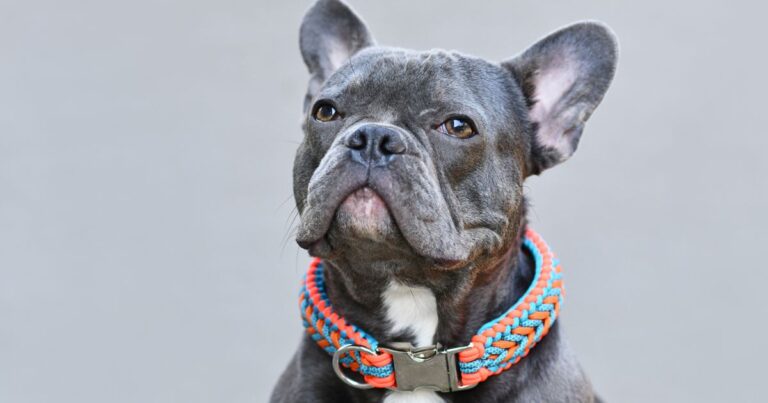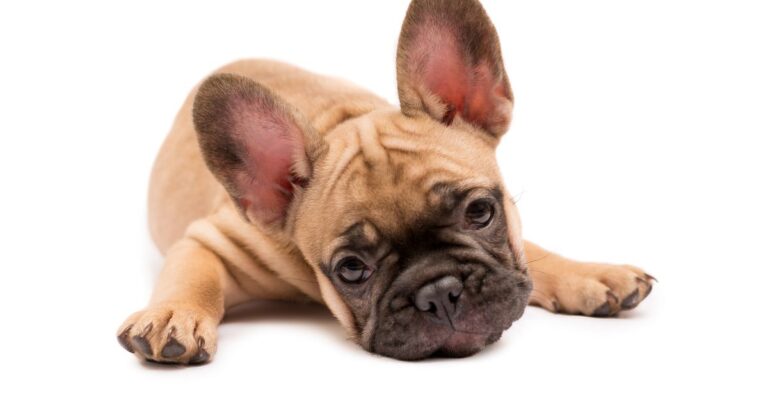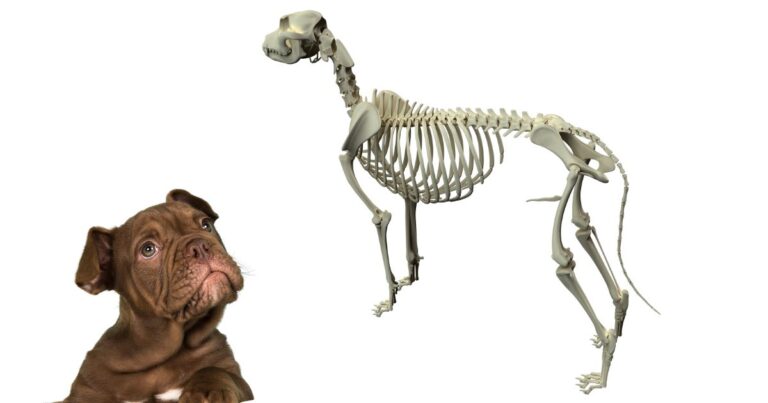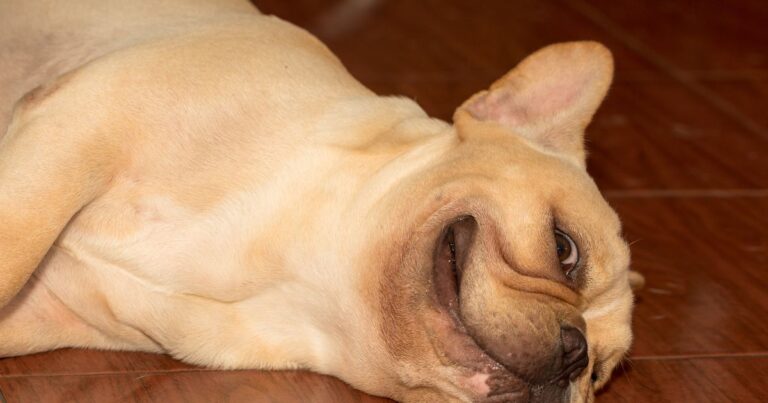French Bulldog Cleft Palate
Table of Contents
French Bulldog Cleft Palate
| Factors | Description |
|---|---|
| Genetic Predisposition | French Bulldogs are genetically predisposed to cleft palates due to their brachycephalic (flat-faced) characteristics. |
| Symptoms | Difficulty nursing, chronic sneezing, nasal discharge, and weight loss in puppies. |
| Diagnosis | A thorough physical examination by a veterinarian, often under anesthesia. Additional diagnostic tests such as X-rays or endoscopy may be needed. |
| Treatment | Depending on the severity, treatment can range from feeding modifications to surgical intervention. |
| Prevention | While largely genetic, minimizing exposure to certain chemicals during pregnancy and providing a balanced diet can help reduce the risk. |
Ever seen a French Bulldog smile with a cleft palate? It’s a sight that tugs at your heartstrings! But what does it mean for your Frenchie’s health? Stick around as we dive into the world of French Bulldog cleft palates, their causes, and treatments. Let’s unravel this mystery together!
Introduction
When it comes to our beloved French Bulldogs, understanding their unique health challenges is crucial. One such issue is a cleft palate, a genetic disorder that can affect these adorable flat-faced companions. A cleft palate is an abnormal opening in the roof of the mouth that connects the nasal passages with the mouth. This condition can lead to various health problems, including difficulty eating, chronic respiratory infections, and even life-threatening pneumonia. But don’t worry, with the right care and attention, a French Bulldog with a cleft palate can still live a long, happy life.

Despite the challenges a cleft palate may present, with the right care and attention, your Frenchie can live a long, happy life.
In this comprehensive guide, we’ll delve into everything you need to know about cleft palate in French Bulldogs. We’ll explore the role of genetics, how to recognize the signs in puppies, the importance of a veterinarian’s diagnosis, and the potential complications of surgery. We’ll also touch on the role of chemicals and Vitamin A in the development of a cleft palate. So, let’s wag on and learn more about this condition to ensure our Frenchies live their best lives!
Top 5 Facts About French Bulldogs and Cleft Palate
- French Bulldogs are more susceptible to cleft palates due to their brachycephalic characteristics.
- A cleft palate is an abnormal opening in the roof of the mouth that connects the nasal passages with the mouth.
- Symptoms of a cleft palate in puppies include difficulty nursing, chronic sneezing, nasal discharge, and weight loss.
- Treatment for a cleft palate can range from feeding modifications to surgical intervention, depending on the severity of the condition.
- With the right care and management, a French Bulldog with a cleft palate can live a long, happy life.
Is cleft palate common in French Bulldogs?
A cleft palate in French Bulldogs is more than just a physical anomaly; it’s a genetic disorder that can significantly impact their quality of life. While it’s not as common as other health issues associated with the breed, such as hip dysplasia or brachycephalic syndrome, it’s still a condition that every Frenchie owner should be aware of.
Cleft palate is more prevalent in brachycephalic breeds like French Bulldogs due to their unique physical characteristics. Their flat faces and short skulls, while endearing, can lead to certain anatomical abnormalities, including a cleft palate. This doesn’t mean that every Frenchie will develop this condition, but it does mean that they are at a higher risk compared to other breeds.
Recognizing Cleft Palate in Puppies
| Signs | Description |
|---|---|
| Difficulty Nursing | Puppies may struggle to suckle and may detach from the nipple frequently. |
| Nasal Discharge | Food or milk may come out of the nose during or after feeding. |
| Chronic Sneezing | Frequent sneezing or snorting may indicate food or liquid is entering the nasal passages. |
| Weight Loss | Puppies may fail to gain weight at the same rate as their littermates due to feeding difficulties. |
The Role of Genetics and Embryonic Development
The beauty of French Bulldogs lies in their distinctive flat faces, a characteristic of brachycephalic breeds. However, this trait also makes them more susceptible to certain genetic disorders like cleft palate. The condition occurs when the two sides of the palate fail to come together and fuse during embryonic development, leaving an opening that connects the mouth and nasal passages.
Genetics play a significant role in this process. Certain genes control the development of the palate, and if these genes carry mutations, it can lead to a cleft palate. In French Bulldogs, the genetic link is particularly strong due to the breed’s physical characteristics. However, it’s important to note that genetics isn’t the only factor at play. Environmental factors, such as exposure to certain chemicals during pregnancy, can also contribute to the development of a cleft palate.

Recognizing Cleft Palate in Puppies
If you’ve ever seen a 3-4 months old Frenchie puppy struggling with nursing or showing signs of weight loss, they might be dealing with a cleft palate. Puppies with this condition often have difficulty sucking and may fail to gain weight at the same rate as their littermates. They may also show signs of chronic respiratory infections, as the opening in their palate can allow food and liquids to enter their nasal passages and lungs, leading to aspiration pneumonia.
Early detection is crucial in managing a cleft palate. If you notice any unusual signs in your Frenchie puppy, such as difficulty feeding, chronic sneezing, or nasal discharge, it’s important to consult with a veterinarian as soon as possible. With early intervention, many of the complications associated with a cleft palate can be managed, improving the quality of life for affected puppies.
5 Signs Your Frenchie Might Have a Cleft Palate
- Difficulty nursing or eating
- Chronic sneezing or coughing
- Nasal discharge, especially after eating
- Failure to gain weight or grow at the same rate as littermates
- Recurring respiratory infections
The Role of a Veterinarian in Diagnosis
Identifying the exact cause of a cleft palate in French Bulldogs can be complex, and this is where the expertise of a veterinarian comes into play. A thorough physical examination, often under anesthesia, is usually required to diagnose a cleft palate. In some cases, additional diagnostic tests such as X-rays or endoscopy may be needed to assess the extent of the condition and plan for potential surgery.
Veterinarians also play a crucial role in managing the condition. They can provide guidance on feeding techniques to minimize the risk of aspiration pneumonia, recommend appropriate medical treatments, and refer you to a veterinary surgeon if surgery is needed. Remember, while a cleft palate can be a challenging condition to manage, with the right veterinary care, your Frenchie can still lead a happy and fulfilling life.
5 Misconceptions About Cleft Palate in French Bulldogs
- Cleft palate is a minor condition that will resolve on its own.
- Only purebred French Bulldogs can have a cleft palate.
- Cleft palate is always visible from the outside.
- Surgery is the only treatment option for a cleft palate.
- A dog with a cleft palate cannot live a normal life.
Do all cleft palate puppies need surgery?
Correcting a cleft palate is no small feat. It requires an operation to close the opening, a task that needs the hands of a highly-skilled surgeon. But does every Frenchie with a cleft palate need surgery? The answer depends on the severity of the condition.
In mild cases, where the cleft is small and the puppy shows no signs of respiratory distress or difficulty feeding, surgery may not be necessary. However, in more severe cases, where the cleft is large or causing significant health issues, surgical intervention is often the best course of action.
It’s important to note that surgery for cleft palate is not without risks. It’s a complex procedure that requires a high level of skill and experience. Therefore, it’s crucial to find a veterinarian or veterinary surgeon who has experience with this type of surgery.
5 Steps to Care for a French Bulldog with a Cleft Palate
- Consult with a veterinarian for a proper diagnosis and treatment plan.
- Modify feeding practices to prevent aspiration.
- Monitor for signs of respiratory distress or other complications.
- Consider surgical intervention if recommended by your veterinarian.
- Provide a safe and comfortable environment for your Frenchie.
Can a dog with cleft palate survive without surgery?
The answer to this question depends on the severity of the cleft palate. In mild cases, some dogs can live with a cleft palate without needing surgery. However, they may require special care, such as feeding modifications, to prevent food and liquid from entering the nasal passages.
In more severe cases, where the cleft palate is causing significant health issues, surgery may be necessary. Without surgery, these dogs may struggle with chronic respiratory infections, malnutrition, and other complications.
It’s important to discuss your dog’s individual case with a veterinarian. They can provide guidance on the best course of action based on your dog’s specific needs and the severity of their condition.
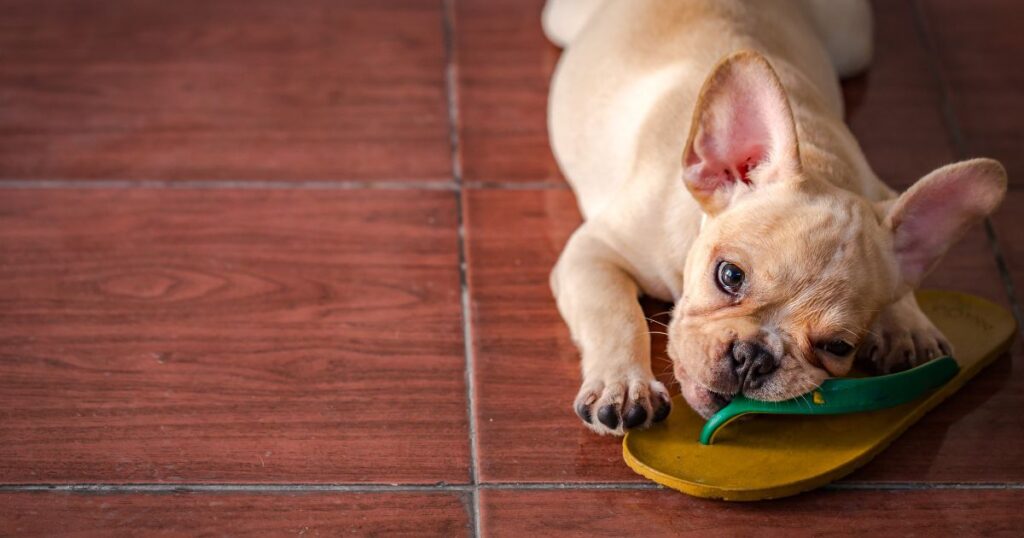
Potential Complications of Surgery
While surgery can offer a solution, it’s not without its challenges. It can be expensive and may lead to long-term complications, even when successfully-treated. Some potential complications include wound dehiscence (where the surgical wound reopens), infection, and persistent fistula (an abnormal connection between the mouth and nasal passages).
Despite these potential complications, many dogs with a cleft palate can still lead a long, happy life after surgery. The key is to work closely with a veterinarian who can provide appropriate post-operative care and monitor for any potential complications. With the right care, many dogs recover well from surgery and go on to live normal, healthy lives.
Potential Complications of Cleft Palate Surgery
| Complications | Description |
|---|---|
| Wound Dehiscence | The surgical wound may reopen after surgery. |
| Infection | As with any surgery, there’s a risk of post-operative infection. |
| Persistent Fistula | An abnormal connection between the mouth and nasal passages may persist even after surgery. |
The Role of Chemicals and Vitamin A in Cleft Palate
Did you know that exposure to certain chemicals during pregnancy or excessive Vitamin A can cause a cleft palate in French Bulldogs? While the exact cause of cleft palate is often multifactorial, involving both genetic and environmental factors, certain chemicals and nutrients have been implicated in its development.
For example, exposure to certain medications, pesticides, or other chemicals during pregnancy can increase the risk of cleft palate in puppies. Similarly, excessive Vitamin A during pregnancy has also been linked to an increased risk of cleft palate. Therefore, it’s important to provide a balanced diet and avoid unnecessary chemical exposures during pregnancy to minimize the risk of this condition.
Can a dog live with a cleft palate?
Despite the challenges a cleft palate may present, with the right care and attention, your Frenchie can live a long, happy life. Management of a cleft palate involves a combination of medical care, potential surgical intervention, and at-home care.
At home, you can help your Frenchie by providing a safe and comfortable environment, feeding them in a way that minimizes the risk of aspiration, and monitoring for any signs of respiratory distress or other complications. Regular check-ups with a veterinarian are also crucial to monitor your dog’s health and manage any potential complications.
Feeding Modifications for French Bulldogs with Cleft Palate
| Modifications | Description |
|---|---|
| Upright Feeding | Feeding the puppy in an upright position can help prevent food from entering the nasal passages. |
| Special Diet | A diet of easily digestible, high-calorie food can help ensure the puppy gets the nutrients they need. |
| Feeding Tube | In some cases, a feeding tube may be necessary to ensure the puppy gets adequate nutrition. |
Remember, a cleft palate doesn’t define your Frenchie. With your love and care, they can still lead a joyful and fulfilling life.
Caring for a French Bulldog with a cleft palate can be a journey filled with challenges, but the rewards of seeing them lead a happy, fulfilled life are immeasurable.
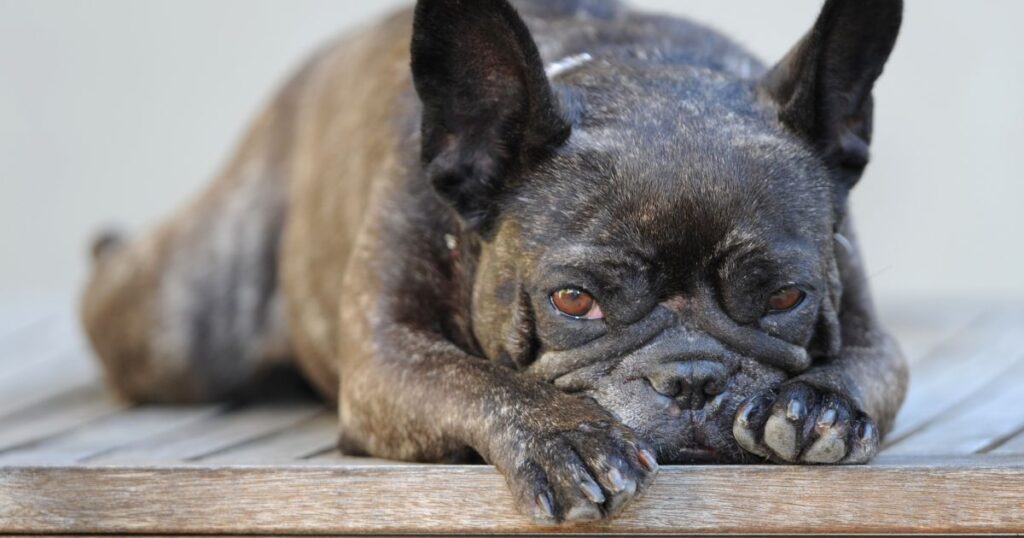
Conclusion
Caring for a French Bulldog with a cleft palate can be a journey filled with challenges, but the rewards of seeing them lead a happy, fulfilled life are immeasurable. It requires understanding, patience, and a strong partnership with a veterinarian. But remember, every challenge you overcome together strengthens the bond you share with your Frenchie.
Whether your Frenchie has a cleft palate or you’re just learning about this condition, we hope this guide has been helpful. Remember, knowledge is power. The more you know about your Frenchie’s health, the better equipped you’ll be to provide them with the best care possible.
For more information on French Bulldog health and care, check out our other articles here and here. Together, we can ensure our Frenchies live their best lives!
Also check out my other pages in this series: French Bulldog Deafness and French Bulldog Autoimmune Disorders
Disclaimer: This article is intended for informational purposes only. It’s not a substitute for professional veterinary advice, diagnosis, or treatment. Always seek the advice of your veterinarian with any questions you may have regarding your pet’s health.
Frequently Asked Questions
Can a Frenchie survive with a cleft palate?
Yes, a French Bulldog can survive with a cleft palate. However, they may require special care, including feeding modifications and potentially surgery, depending on the severity of the condition. Regular check-ups with a veterinarian are crucial to monitor their health and manage any potential complications.
Is cleft palate common in French Bulldogs?
While not as common as other health issues like hip dysplasia or brachycephalic syndrome, cleft palate does occur in French Bulldogs. The breed’s unique physical characteristics, including their flat faces and short skulls, make them more susceptible to this condition.
Can a dog live with a cleft palate?
Yes, with the right care and attention, a dog with a cleft palate can live a long, happy life. Management of a cleft palate involves a combination of medical care, potential surgical intervention, and at-home care.
How do you feed a French bulldog with a cleft palate?
Feeding a French Bulldog with a cleft palate requires some modifications to prevent food and liquid from entering the nasal passages. This can include feeding them in an upright position, using a feeding tube, or providing a special diet. It’s best to consult with a veterinarian for specific feeding recommendations.
Can a cleft palate heal on its own?
A cleft palate is a genetic disorder that does not heal on its own. It’s an anatomical defect that requires medical intervention, and in some cases, surgical correction.
Can a dog with cleft palate survive without surgery?
The answer to this question depends on the severity of the cleft palate. In mild cases, some dogs can live with a cleft palate without needing surgery. However, they may require special care, such as feeding modifications, to prevent food and liquid from entering the nasal passages.
Do all cleft palate puppies need surgery?
Not all puppies with a cleft palate require surgery. The need for surgery depends on the severity of the condition and the puppy’s overall health. In severe cases, where the cleft palate is causing significant health issues, surgical intervention is often the best course of action.
How long can a puppy live with a cleft palate?
With the right care and management, a puppy with a cleft palate can live a normal lifespan. However, it’s important to note that a cleft palate can lead to various health problems, including difficulty eating and chronic respiratory infections, which need to be managed appropriately.
How do you prevent cleft palate in puppies?
While cleft palate is largely a genetic disorder, certain environmental factors can contribute to its development. This includes exposure to certain chemicals during pregnancy and excessive Vitamin A. Therefore, providing a balanced diet and avoiding unnecessary chemical exposures during pregnancy can help minimize the risk of this condition.

